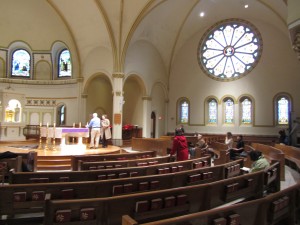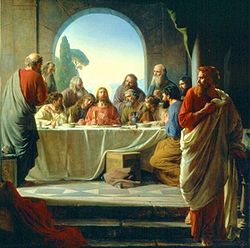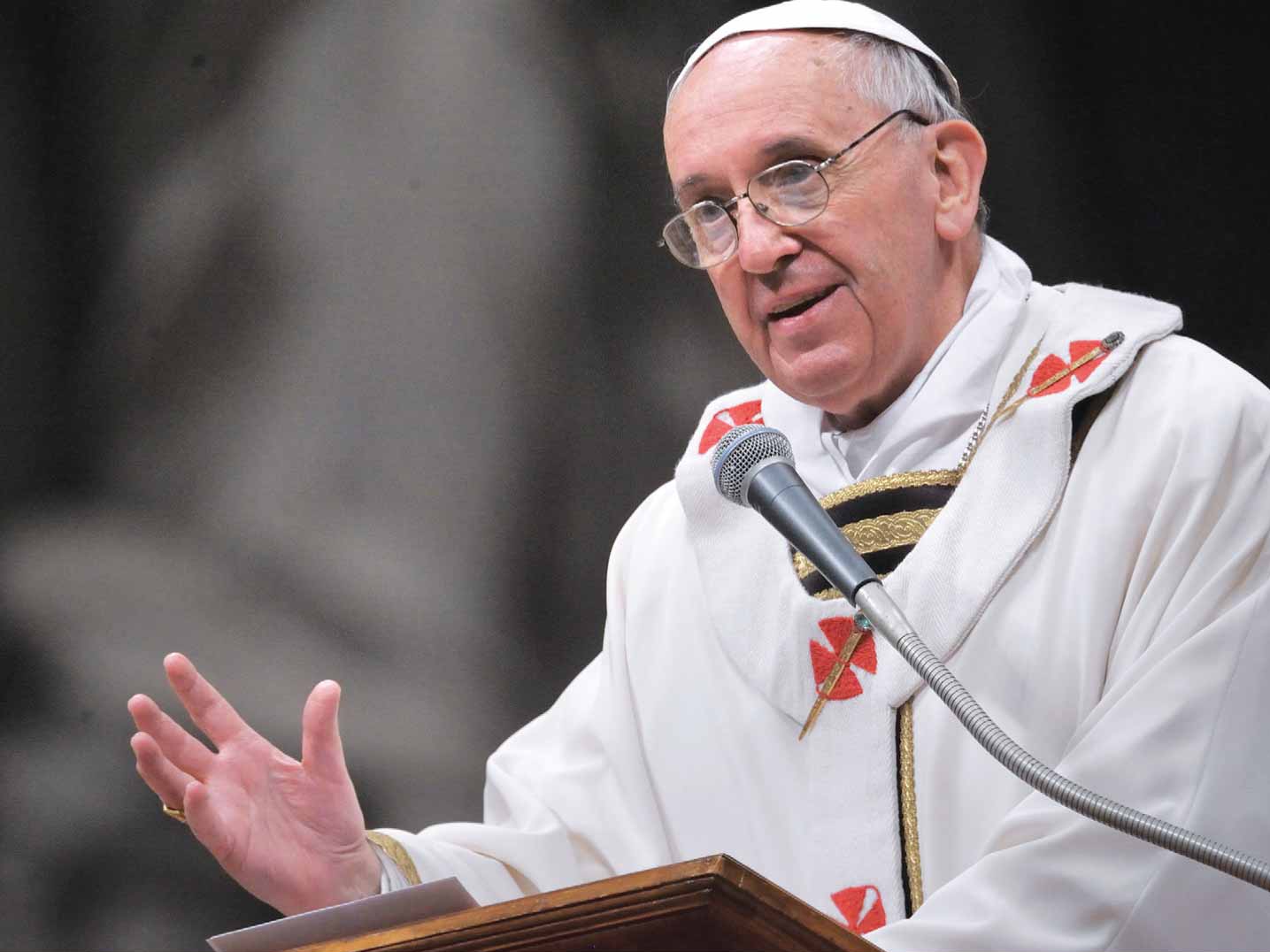Homily delivered by Archbishop Thomas Wenski during the annual Mass for neophytes celebrated June 5, 2011 at St. Mary Cathedral. Neophytes are those who received the sacraments of Baptism, Confirmation and Communion during the Easter Vigil in their parishes.
Today, we welcome to the Cathedral, the mother church of this Archdiocese, our neophytes – those who were baptized in their parishes at this year’s Easter Vigil.
The rites of initiation symbolized your “conversion” to Christ and, through baptism, confirmation and the Eucharist, you have become members of the Body of Christ: sons and daughters of God by adoption. For Catholics, though, conversion is not just a once in a lifetime event – our turning towards the Lord is the work of a lifetime.
Perhaps, that’s why we call ourselves “practicing Catholics” – becoming a Catholic Christian requires a lot of practice. We got to keep practicing until we get it right.
Becoming a Catholic is a lot like learning to speak a new language well or to play a new sport.
Before you can speak a new language well, you have to learn the grammar. Grammar might seem to be all about rules and regulations. And your conversion to the Lord and your baptism into the Catholic Church means learning the rules and regulations about self-control, purity of heart and mind, it is about learning how to deny oneself, to respect others, to serve instead of being served. And as you learn the grammar, you have to practice, practice, practice…
It’s the same way in learning a new sport. This past week we have watched some great athletes in the Basketball finals between the Heat and the Mavericks. The best players know that they cannot ignore the rules and regulations of basketball. In fact, knowing and keeping the rules make it easier, not harder, to play the game.
In the same way, the Commandments, the rules and regulations of Christian living, give us the freedom to embrace a future of love.
Just as a Lebron or a Wade can teach us about the game of basketball, the saints can teach us about how to live our Catholic faith. We might not all be basketball stars; but, we are all called “to be holy”, we are all called to “fellowship” with Jesus Christ. Indeed, through baptism you have begun a new relationship with the Lord – and with all his brothers and sisters in the Church.
In the lives of the saints, we find remarkable journeys of hope: they trusted God confident that he was their final destination; and each one – in different ways to be sure – but each one offered an outstretched hand of hope to those they met along the way. But as they made their life’s journey, Jesus was their constant companion – and they constantly conversed with him along the way. But saints are not made in a day.
The Resurrection of Christ defeats the power of evil; but it has yet to defeat the presence of evil. Baptism took away all our sins but it doesn’t take away temptation. That’s why I said that ‘conversion’ is a lifetime event, a constant turning away from sin and a turning towards the Lord. The faith you received at Baptism is a gift – a beautiful, freely given and undeserved grace. But while faith is a gift, it is also a task entrusted to us. As St. Paul would tell his converts: Work to make your election permanent. Or as I said earlier, “practice, practice, practice.”
We heard in the gospel today about the Ascension of the Lord, today we celebrate his Ascension into heaven, to his place at the right hand of the Father.
Jesus gathers the “eleven” – missing, of course, is Judas who, even though he had eaten and drank with Jesus, betrayed him. Such betrayals still happen today.
And, even as Jesus prepared to return to his Father, Matthew tells us that the eleven worshipped Jesus – but some doubted. Perhaps, a better translation would be that they “hesitated”.
Saints are not made in a day – we, like the apostles, have to grow into the role that Jesus gives us. Growing into your role as newly baptized Catholics also means overcoming whatever “hesitations” you may still have. But as Jesus says, we will become his disciples and we will bring the good news of salvation to all by obeying all the commandments he has taught us. Observing all that he has commanded us – not picking and choosing – but observing all that he has commanded us with the help of God’s grace gained through constant prayer – makes being a Catholic an exciting adventure.
Let me conclude with citing again St. Paul’s words in his letter to the Ephesians – it is as if he wrote them especially for our neophytes today:
Brothers and sisters:
May the God of our Lord Jesus Christ, the Father of glory,
give you a Spirit of wisdom and revelation
resulting in knowledge of him.
May the eyes of your hearts be enlightened,
that you may know what is the hope that belongs to his call,
what are the riches of glory
in his inheritance among the holy ones,
and what is the surpassing greatness of his power
for us who believe…




